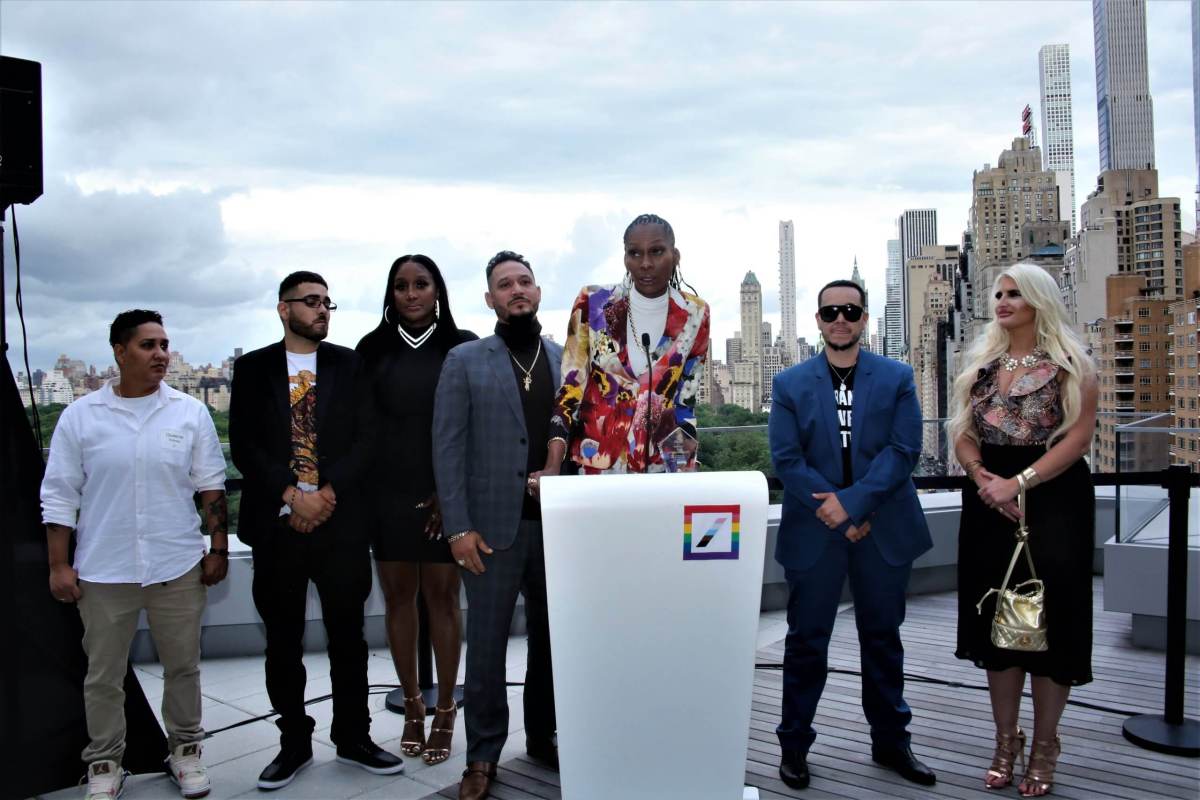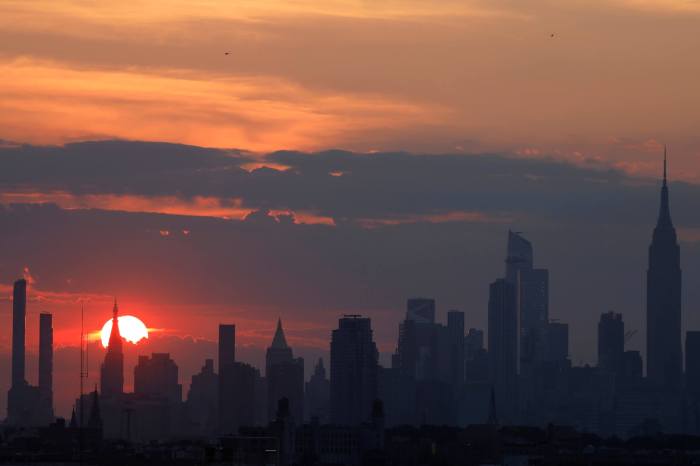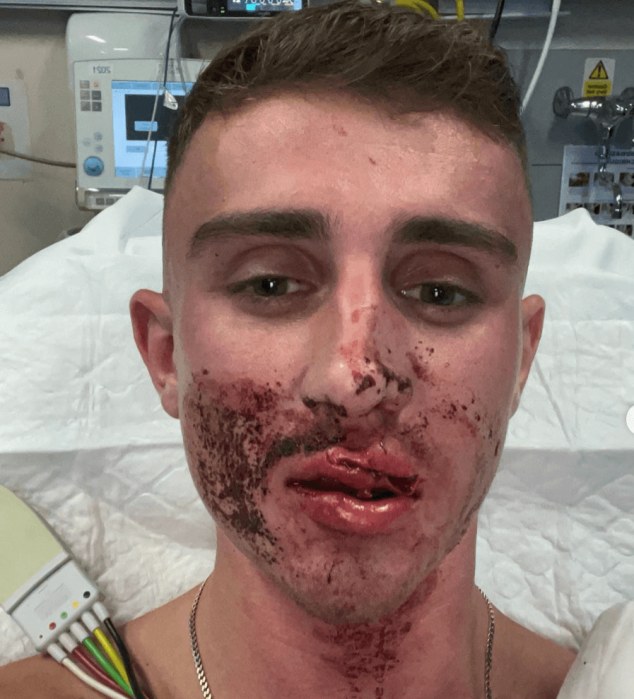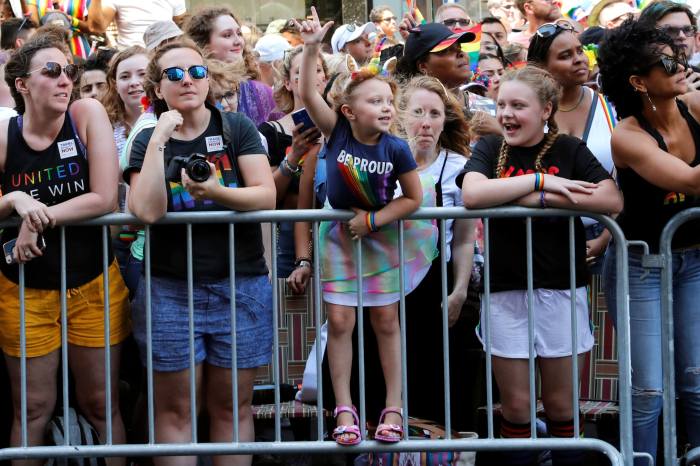Sometimes the need for something is so urgent it must be shouted from the rooftops. In some ways, that was what the Organization for Refuge, Asylum, and Migration (ORAM) was doing at the rooftop deck of Deutsche Bank’s New York headquarters at Columbus Circle, which overlooks the green expanse of Central Park.
Beyond celebrating New York’s Pride Month, the event — which took place June 23 — recognized people who have received assistance over the years from ORAM, which works with persecuted members of the global LGBTQ community. This included Ugandan native Madrine Nanyonjo, who was in New York City for the first time after resettling in Austin, Texas.

Nanyonjo, who identifies as gender non-conforming, explained to Gay City News that they had first worked with ORAM through skills training at Nature Network, an organization in Nairobi, Kenya, where they had sought refuge from Uganda. The training included “videography, video editing, and photography, and also poultry farming. Those were the main livelihood projects that I participated in.”
At the time, they were living in a house with 16 other LGBTQ refugees, a process they described as “a family-based therapy model” because had everyone acted as a family member to one another.
“So, we had this other figure as someone you can talk to as a father, as a mother, auntie and so someone that you can give you a shoulder to lean on,” Nanyonjo said. “I spent all those years going through that.”
They explained that this is part of the difficulty of living as an LGBTQ refugee — and something that many Americans might not be aware of. Although Kenya welcomes queer refugees, it does not necessarily mean the nation’s society is tolerant of LGBTQ individuals.
“I can say it’s really hard,” Nanyonjo said. “Because, first of all, as a refugee, we spend a lot of time just in the process. And when you’re a refugee in another country, like before you’re resettled here, when the country is not welcoming, you still get attacks. Yeah, you’re still at risk to be murdered or anything like an attack can happen at any time. We’ve lost so many people in Nairobi, Kenya.”
While some individuals those people were killed, others lost their lives due to health issues that were untreated, Nanyonjo said.
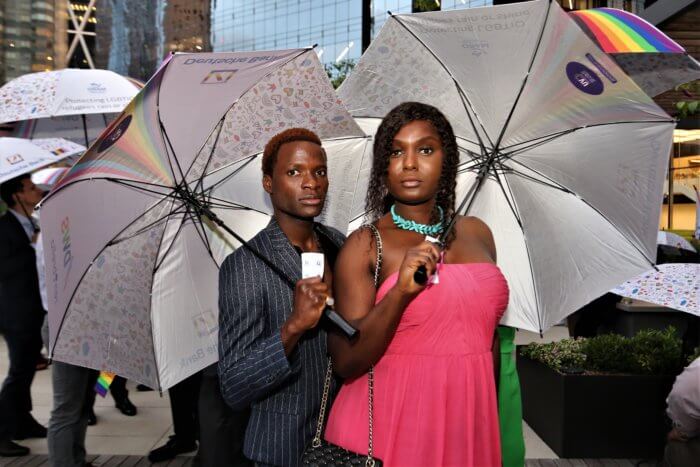
After being introduced by Jon Tilli, from Deutsche Bank’s LGBTQ affinity group, ORAM executive director Steve Roth told the audience that the organization works “primarily in what we call transit countries” — which is when people have left their country of origin, but they have not yet reached a resettlement country. Such locations include Mexico, Central America, and Kenya, which Roth described as “the only country in East Africa that accepts refugees on the basis of their sexual orientation or gender identity.” He spoke also of work in Turkey and, “in Germany, supporting LGBTQ Ukrainians who have fled the war.”
Importantly, Roth told the audience what makes LGBTQ refugees unique is that many people who flee their countries tend to do so with their entire communities or with their families.
“And if you’re LGBTQ, those are often the people that you’re fleeing from, so, you don’t have those built-in support structures, which is all the more reason why it’s important for us to support them,” Roth explained. ORAM engages in livelihood programs to help such refugees become more independent, a process explained by Nanyonjo.
Roth added, “The US still has the border closed to asylum seekers,” which began with COVID-19 under former President Donald Trump, but has not changed under the new administration.
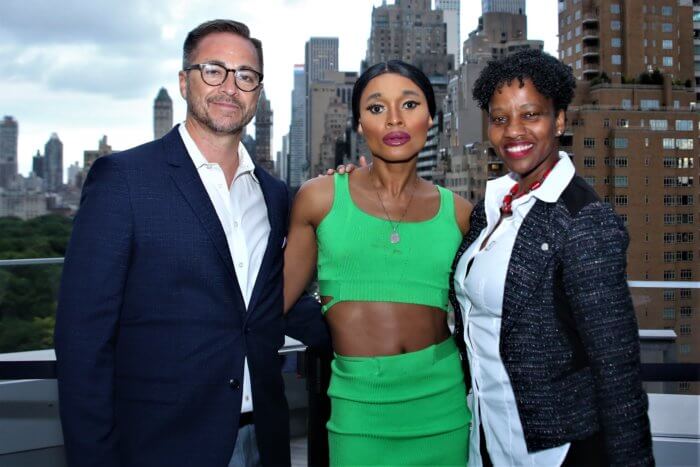
Later in the evening, Roth would tell Gay City News more about the LGBTQ Ukrainian efforts. One of the most immediate needs, Roth said, was shelter, and there were short-term solutions with Airbnb and Hilton. Currently via their ORAM Berlin office, they are helping 100 LGBTQ refugees, including by “starting a housing collective.”
“We’ve started renting apartments and we’re putting Ukrainians on the lease, which allows them to register to stay in Berlin, and then they have full access to social benefits and education and work,” Roth said.
Roth said enormous numbers of LGBTQ refugees have emerged as a result of the Russian invasion. With at least eight million displaced Ukrainians, Roth said “a partner organization that studied surveys on the ground” found “about 5% of people are identifying as LGBTQ. So that’s, 400,000 queer folks coming into Europe. They’re entering places like Poland, which is notoriously homophobic.”
A touch of poignant glamour was when Dominique Jackson, who played Elektra Abundance on the ballroom show Pose, received the ORAM Impact Award. Jackson, from Trinidad & Tobago, said despite her current success, her life had long been a struggle.
“I am an immigrant. I come from Trinidad and Tobago, and in my country, I would see where people that were LGBTQIA+ were treated horribly, were not able to find jobs, and were not given any space whatsoever. And in that instance, I felt homeless in my own homeland. And I had to leave and I sought refuge in the US.”
Jackson reminded the crowd of what she had overcome, being denigrated for many years as someone who was an immigrant, impoverished, and transgender. She welcomed her family, various friends, and her fiancé to the podium, explaining she would not be there without all this support.
In front of a crowd of bankers and LGBTQ elite, she added, “You award me and many of you are here, and you may have a little privilege, and any of us that can get up in the morning and feel comfortable enough to know that we can come back to that bed at night, rent is paid, have a little privilege, you can turn around and help.”
The words of Jackson and other speakers seemed to conjure epiphanies, including for those who consider themselves allies. Among them was Latashia Aglink from the German bank’s Black Leadership Forum. Aglink told Gay City News, “being a black woman, allyship is very important.”
What struck her beyond solidarity was what she learned of LGBTQ refugees that she had never thought about before.
“When I think of refugees, I simply think about a group of people running from conflict or war. I didn’t realize that this community, they’re running from their families. They’re running from being tortured, and not necessarily, you know, from the country itself, but just from the people who should love them.”

